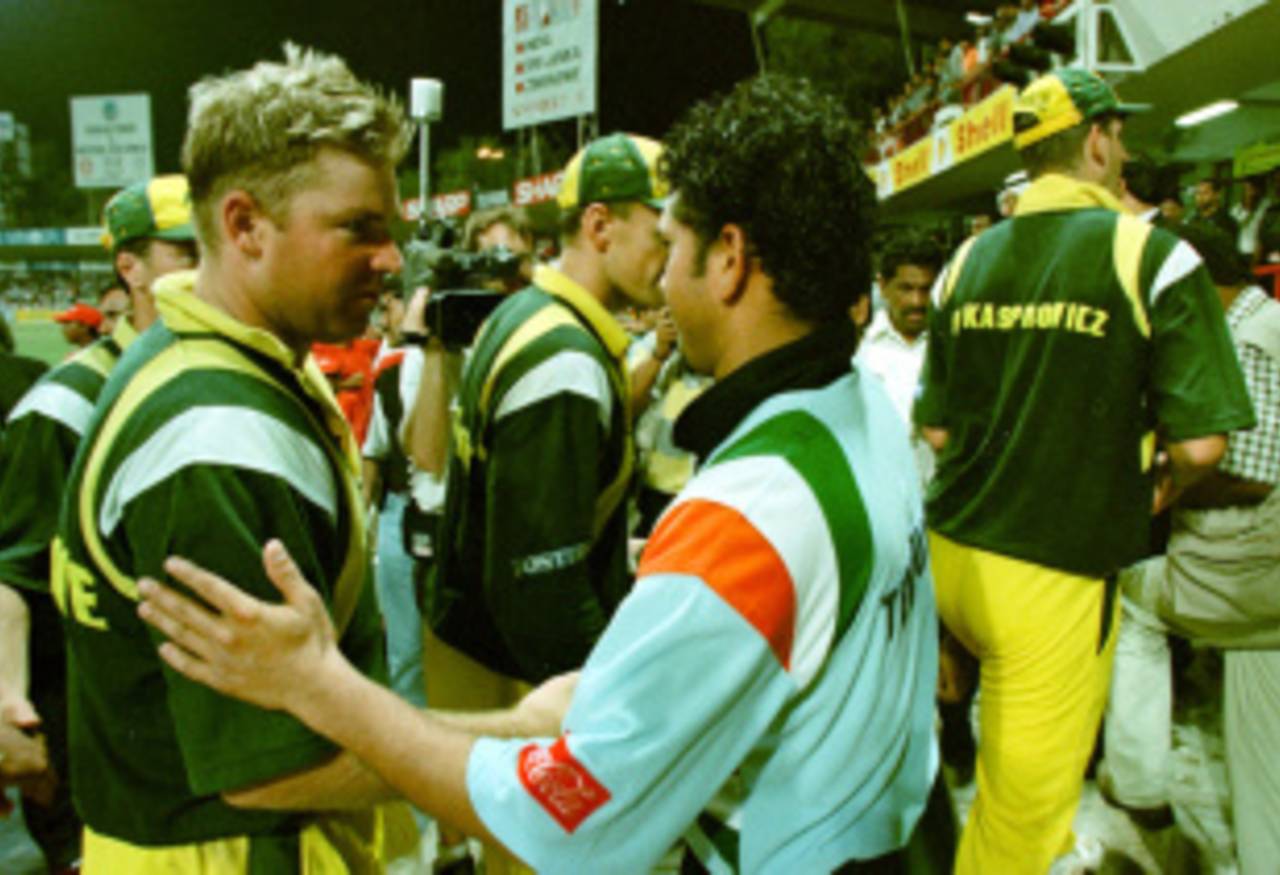Whenever I come to Bangalore, I inevitably get into an argument with my friends about whether or not Madras sucks. It's an old rivalry between two fiercely proud cities, vying to be the top metropolis of the South. Madrasis cling to tradition, claim greater depth of character and mathematical prowess, and like to flaunt their coastal status in the face of landlocked, used-to-be-garden-but-isn't-anymore Bangalore. Bangaloreans on the other hand, are hipper, cooler (literally and figuratively), have better access to more exciting places, and enjoy less exacting liquor laws. Still, it's no fun to come all the way across the border just to watch
your team lose.
Rivalries have always fascinated me, be it in sport, music, or racing to see who gets to the moon first. They can be the stuff of legend, and I'm not talking about no Symonds-Harbhajan beef-up. I'm talking about deeper, long-lasting rivalries that can define eras.
Take the case of Bjorn Borg and John McEnroe. One a cool, unflappable baseliner, the other a brash, bad-mouthed volleyer. Their 1980 Wimbledon final was one of the greatest every played. Borg won that round, but McEnroe beat him the following year, ending Borg's five-year winning streak. When Borg quit tennis soon after, McEnroe admitted that his professional life was never as much fun again. Their mantle has been taken up by Roger Federer and Rafael Nadal, and it's possible that whenever Federer decides to retire, Nadal will feel that same vacuum in his life.
In cricket it's a little different. There are traditional rivalries between teams like Bombay and Delhi for the Ranji Trophy, Australia and England for the Ashes (although this hardly qualifies as a rivalry, given that in the last 20 years England has had only one victory), and the hallowed India-Pakistan rivalry, which has had such a chequered and volatile history that whenever these two nations are represented on the cricket pitch, the economies of both countries are guaranteed to come to a grinding halt.
While it's easy to whip up nationalistic fervour with teams, I think real rivalries transcend mere borders. Real rivalry comes down to individuals, and by this I don't mean who gets to wear an orange or purple cap. Notching up a certain amount of runs or wickets is, in a sense, a prosaic battle. In cricket, the ultimate showdown has always been between the bowler and the batsman.
I saw a glimpse of this in
yesterday's match between the Mumbai Indians and the Rajasthan Royals. I caught only one over of the match on my way out of a restaurant, but it happened to be the one in which
Shane Warne got
Sachin Tendulkar out.
Warne and Tendulkar have had a long-standing competitive relationship since the early 90s. Last year Warne released a list of his hundred greatest players of his time and Tendulkar topped the list. Warne has admitted to having nightmares about Sachin stepping out and hitting him straight back over the head. Tendulkar in return has said that Warne's greatness lies in the fact that even if he's not taking wickets he's coming at you all the time, and for this reason he always prefers to be on his toes when facing him.
Their rivalry is extraordinary not just because of its longevity, but because, like Borg and McEnroe, they are so radically different and almost representative of their national stereotypes. Tendulkar is quiet, short and modest. Warne is loud, hulking and flash. The fact that they can still play like they play, and egg each other on to higher levels of individual greatness, lies at the core of their rivalry.
Warne may have had his way yesterday, but both he and Tendulkar know that on another day everything can change. And in a sense that's what great rivalries are all about. It's not about proving one's superiority over the other or having the last laugh. It's about going out there and seeing to whom the day will belong.
